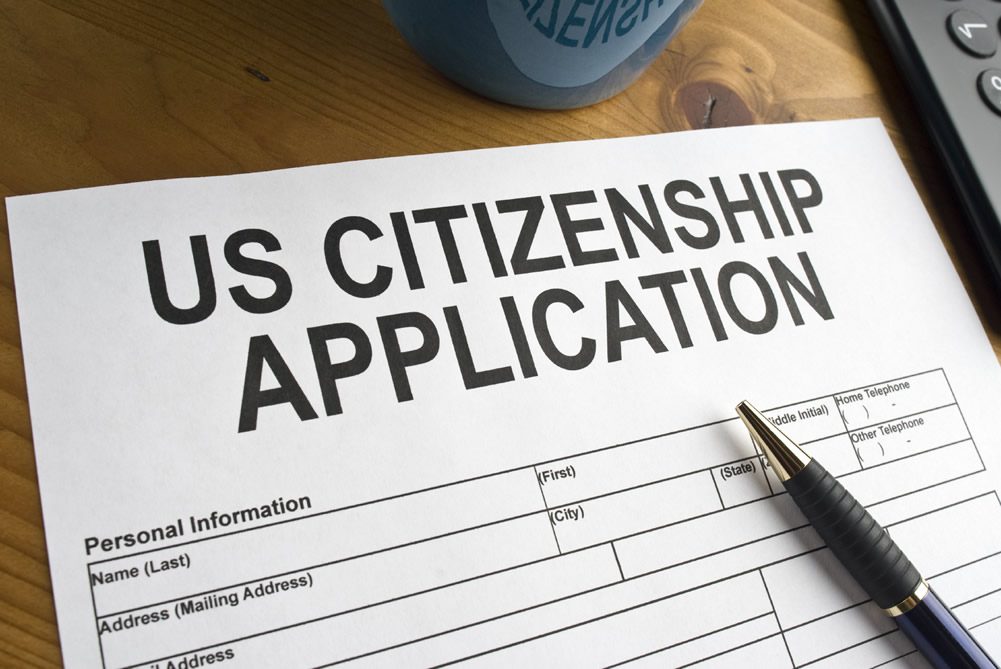Leaving The US For Europe: An Examination Of Citizenship Applications By American Citizens

Table of Contents
Understanding Different Pathways to European Citizenship
Obtaining European citizenship as an American citizen can be achieved through several avenues, each with its unique requirements and complexities. Let's explore the main pathways:
Citizenship by Descent
Many European countries offer citizenship based on ancestry. This means you might be eligible if your grandparents or great-grandparents were citizens of that country. This path, often referred to as jus sanguinis, relies heavily on meticulous documentation.
- Requirements and Documentation: You'll typically need to provide birth certificates, marriage certificates, and potentially other genealogical documents tracing your lineage back to a European citizen. The specific requirements vary dramatically.
- Varying Rules Across Countries: The rules for citizenship by descent differ significantly between countries. Some may require unbroken lineage, while others might have more flexible criteria.
- Examples:
- Italy: Known for its relatively lenient rules regarding citizenship by descent, often extending to multiple generations.
- Ireland: Offers citizenship by descent to those with Irish-born grandparents.
- Germany: Has specific rules and regulations based on the year your ancestor became a German citizen and their subsequent actions.
Naturalization
Naturalization is another common pathway, involving residing in a European country for a specified period and meeting certain criteria.
- Residency Requirements: The length of residency required varies considerably. Some countries require five years of continuous legal residency, while others may demand ten or more.
- Language Requirements and Integration Tests: Most countries require applicants to demonstrate proficiency in the national language and pass a test assessing their knowledge of the country's history, culture, and civic values. This ensures successful integration into society.
- Examples:
- France: Requires a minimum of five years of legal residency to apply for naturalization.
- Spain: Requires ten years of legal residency, potentially reduced with specific qualifications.
- United Kingdom: Has specific requirements for different types of residency visas and paths to citizenship.
Marriage to a European Citizen
Marrying a citizen of a European country can significantly simplify and expedite the citizenship application process.
- Requirements: While marriage offers a faster track, specific residency requirements still apply, though often shorter than those for naturalization.
- Variations Across Countries: The rules vary; some countries might require a shorter residency period post-marriage, while others maintain stricter rules.
- Potential Challenges: Documenting the validity of the marriage and meeting all other eligibility criteria remains crucial.
- Examples: The specific requirements for marriage-based citizenship change widely across the European Union, so it’s crucial to research the specific requirements of your spouse's home country.
The Legal and Financial Implications of Obtaining European Citizenship
Becoming a European citizen has significant legal and financial consequences for American citizens.
Renouncing US Citizenship
Renouncing US citizenship is a serious decision with potential tax implications and the loss of certain US benefits.
- Process: Renunciation involves formally declaring your intention to relinquish US citizenship before a US consular officer.
- Tax Implications (FATCA): The Foreign Account Tax Compliance Act (FATCA) requires US citizens to report their foreign accounts and assets, even after renouncing citizenship. This can lead to significant tax liabilities if not handled correctly.
- Loss of Benefits: Renunciation results in the loss of certain US benefits like access to Social Security and Medicare.
- Key Steps: Consult with a qualified tax advisor and legal professional experienced in expatriation before making this decision.
Tax Implications in Europe
Understanding the tax systems in both the US and your chosen European country is paramount to avoid double taxation.
- Tax Systems: European tax systems vary widely, from progressive to regressive models.
- Double Taxation: You might face double taxation unless proper treaties or mechanisms are in place to mitigate this.
- Professional Advice: It’s crucial to seek professional tax advice from both US and European tax experts.
- Examples: Germany has a progressive tax system, while other countries might have a flat tax rate.
Financial Considerations
The process of applying for European citizenship comes with associated costs, as well as significant lifestyle changes.
- Application Costs: Application fees, legal representation, and document translation can add up.
- Cost of Living: The cost of living varies widely across Europe. Research your target location thoroughly.
- Financial Planning: Develop a robust financial plan encompassing potential costs and adjustments to your lifestyle.
Resources and Further Assistance for American Citizens Applying for European Citizenship
Navigating the complex process of obtaining European citizenship requires access to the right information and professional guidance.
-
Government Websites: Research the official websites of your target country's immigration authorities.
-
Immigration Lawyers and Consultants: Consult reputable immigration lawyers specializing in dual citizenship and expatriation.
-
Online Resources and Forums: Explore forums and online communities dedicated to American expats in Europe.
-
Useful Websites and Contact Information: (Include links to relevant government websites, lawyer referral services, and expat forums.)
Conclusion
Obtaining European citizenship as an American citizen is a complex process involving legal, financial, and logistical considerations. This article has highlighted the key pathways – citizenship by descent, naturalization, and marriage – and the importance of understanding the implications of renouncing US citizenship and navigating international tax laws. Remember to seek professional legal and financial advice tailored to your specific circumstances before beginning your application process. Start your journey towards securing your European citizenship today by thoroughly researching the specific requirements for your chosen country and consulting with the relevant authorities. Don't hesitate to begin exploring the options for leaving the US for Europe and applying for citizenship.

Featured Posts
-
 Bbc Antiques Roadshow Couple Jailed For Unknowingly Trafficking National Treasure
May 21, 2025
Bbc Antiques Roadshow Couple Jailed For Unknowingly Trafficking National Treasure
May 21, 2025 -
 Viral Reddit Story The Missing Girl Who Inspired A Sydney Sweeney Movie
May 21, 2025
Viral Reddit Story The Missing Girl Who Inspired A Sydney Sweeney Movie
May 21, 2025 -
 Is Little Britain Returning Matt Lucas Offers A Status Update
May 21, 2025
Is Little Britain Returning Matt Lucas Offers A Status Update
May 21, 2025 -
 Ginger Zees Fiery Rebuttal To Ageist Comment
May 21, 2025
Ginger Zees Fiery Rebuttal To Ageist Comment
May 21, 2025 -
 Klopps Influence How Ex Liverpool Managers Fame Boosts Hout Bay Fc
May 21, 2025
Klopps Influence How Ex Liverpool Managers Fame Boosts Hout Bay Fc
May 21, 2025
Latest Posts
-
 Understanding D Wave Quantum Qbts Stocks Sharp Increase This Week
May 21, 2025
Understanding D Wave Quantum Qbts Stocks Sharp Increase This Week
May 21, 2025 -
 D Wave Quantum Qbts A Quantum Computing Stock Investment Analysis
May 21, 2025
D Wave Quantum Qbts A Quantum Computing Stock Investment Analysis
May 21, 2025 -
 Rigetti Rgti And Ion Q A Deep Dive Into Quantum Stock Performance In 2025
May 21, 2025
Rigetti Rgti And Ion Q A Deep Dive Into Quantum Stock Performance In 2025
May 21, 2025 -
 D Wave Quantum Qbts Stock Soars Analyzing This Weeks Price Increase
May 21, 2025
D Wave Quantum Qbts Stock Soars Analyzing This Weeks Price Increase
May 21, 2025 -
 Should You Invest In D Wave Quantum Qbts Stock
May 21, 2025
Should You Invest In D Wave Quantum Qbts Stock
May 21, 2025
